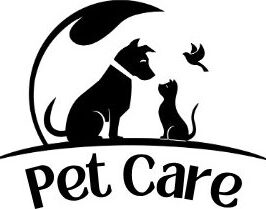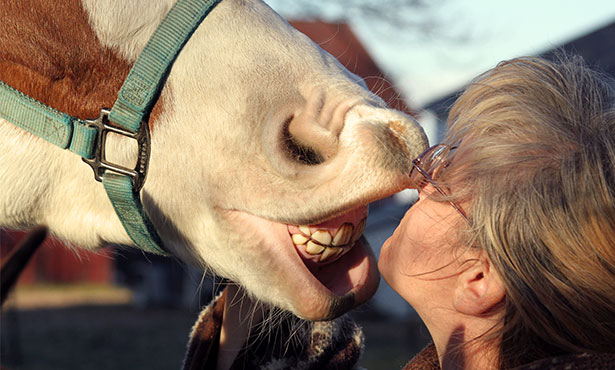When we think about horses, we often think about their speed, strength, and beauty. But one part of a horse’s body that doesn’t get enough attention is their teeth. Horse teeth are very important for their overall health and daily life. Without healthy teeth, horses cannot chew their food properly, which can lead to many health problems.
In this article, we’ll learn about horse teeth, how they work, what problems can happen, and how we can take care of them in simple and easy ways.
How Many Teeth Do Horses Have?
Adult horses usually have 36 to 44 teeth depending on their age and gender.
- Mares (female horses) often have fewer teeth because they usually don’t have canine teeth.
- Geldings and stallions (male horses) usually have four canine teeth.
Horses have:
- Incisors (the front teeth) – for cutting grass and hay.
- Premolars and molars (cheek teeth) – for grinding food.
Do Horse Teeth Keep Growing?
Yes, horse teeth keep growing and changing throughout their life. That’s because horses spend a lot of time chewing grass and hay, which slowly wears down their teeth. If their teeth didn’t keep growing, they would wear out too soon.
However, as horses get older, their teeth eventually stop growing, and this can cause problems if they are not checked regularly.
Why Are Horse Teeth So Important?
- Chewing and Digestion
Horses need to chew food into very small pieces so they can digest it properly. If their teeth don’t meet correctly or have sharp edges, it becomes hard for them to chew well. - Comfort and Health
If a horse has dental problems, it can cause pain, making them drop food, lose weight, or even stop eating properly. - Performance
For horses used in riding or sports, dental health is very important. Sharp or painful teeth can make them uncomfortable when wearing a bit, which affects their performance.
Common Horse Teeth Problems
1. Sharp Edges and Points
When horses chew, their teeth can wear unevenly, creating sharp edges that hurt their cheeks or tongue.
2. Hooks and Ramps
Sometimes certain teeth grow longer than others, making it hard for horses to chew properly.
3. Loose or Broken Teeth
Just like humans, horses can break or lose teeth, especially older horses.
4. Wolf Teeth
These are small extra teeth in front of the molars. Some horses have them removed because they can interfere with a bit.
5. Infections or Gum Disease
If food gets stuck or teeth are damaged, infections can happen, which can be painful and dangerous.
Signs Your Horse May Have Dental Problems
- Dropping food while eating (called “quidding”).
- Losing weight even with normal feeding.
- Bad breath or unusual mouth smell.
- Head tossing or discomfort when using a bit.
- Excessive drooling.
- Whole grains appearing in manure (showing poor chewing).
If you notice any of these signs, it’s time to check your horse’s teeth.
How to Care for Horse Teeth
1. Regular Dental Checkups
Horses should have their teeth checked at least once or twice a year by an equine dentist or veterinarian.
2. Floating the Teeth
“Floating” means filing down sharp points and uneven edges on horse teeth. This makes chewing easier and prevents pain.
3. Check for Bit Issues
If you ride your horse, make sure the bit doesn’t press on sharp teeth. Proper dental care can improve riding comfort.
4. Provide the Right Diet
Horses that eat mostly hay and grass have more natural tooth wear than horses fed only pellets or grain. A balanced diet supports better dental health.
Caring for Young and Old Horses
- Young Horses (Under 5 Years): Their teeth change a lot as baby teeth fall out and adult teeth grow. They need frequent checks.
- Adult Horses (5–20 Years): Regular floating and annual dental exams keep them comfortable and healthy.
- Senior Horses (20+ Years): Older horses may lose teeth or have smooth teeth, making it hard to chew. Special senior feeds or soaked hay cubes can help them eat properly.
Interesting Facts About Horse Teeth
- You Can Tell a Horse’s Age by Its Teeth
Experts can estimate a horse’s age by looking at the length, shape, and angle of its teeth. - Horses Chew in a Circular Motion
Unlike humans who chew up and down, horses chew in a circular motion, which helps grind tough hay and grass. - Horses Produce a Lot of Saliva
Chewing stimulates saliva, which helps with digestion and keeps the mouth healthy.
Why Dental Care Saves Money and Stress
Some owners skip dental checkups because they think it’s unnecessary. However, ignoring dental care can lead to serious problems like:
- Expensive emergency treatments.
- Poor performance and weight loss.
- Pain and stress for your horse.
Regular checkups are easier, cheaper, and keep your horse happy and healthy.
Final Thoughts
Horse teeth might not be the first thing you think about when caring for your horse, but they are very important. Healthy teeth mean better chewing, easier digestion, improved comfort with riding gear, and overall better health.
By scheduling regular dental checkups, feeding the right diet, and paying attention to signs of dental trouble, you can keep your horse’s teeth in good shape for life. A happy, healthy mouth means a happy, healthy horse.

